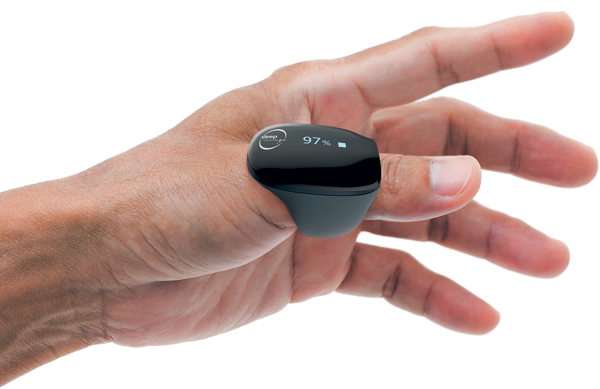
Home Sleep Studies
Although in-laboratory sleep studies (polysomnography (PSG)) are accurate in the comprehensive evaluation of your sleep and allowing the diagnoses of potential sleep disorders, there are situations where home sleep studies that do not require electrodes, wires, straps and other equipment are extremely valuable.
Some patients are unable to sleep in a lab attached to the required sensors and straps, and are only able to sleep in the privacy and comfort of their own home.
For various reasons, some patients may also feel that their lab sleep studies are not reflective of how they actually sleep at home. For these patients, an additional home sleep study would allow us to compare the parameters between environments objectively.
We also have patients that are concerned about their sleep and want an easy and convenient way to assess their sleep without having to wait for a sleep lab study.
For patients who are being treated with an oral appliance, home sleep tests will allow us to run multiple sleep studies with little to no inconvenience to the patient, and titrate the appliance to ensure objectively that their apnea is being treated successfully.
All home sleep studies are interpreted by a registered sleep physician on the Airway team.
You do not need a special referral to get a home sleep study. Home sleep studies are not currently covered by OHIP.
How does it work?
At Airway, we use the SleepImage system, a Health Canada and FDA approved device for the diagnosis and management of sleep disordered breathing. It is a ring that pairs via Bluetooth to a free, secure app on your phone or tablet (available on both the Google Play Store and Apple App Store).
On the morning of your test, make sure you charge your ring. Before you go to sleep, simply pop the ring on your thumb and start the study on the SleepImage app. There are no additional sensors or wires. The app will collect your sleep data and automatically upload it in the morning to the SleepImage cloud server. A report is generated within minutes for a sleep physician to interpret.
Is it accurate?
The SleepImage system is based on clinically validated technology and there has been shown to be a strong correlation and high agreement in the apnea-hypopnea index (AHI - a very important measurement that quantifies the degree of one’s sleep apnea) and diagnostic capability between the SleepImage Ring and standard polysomnography (PSG).²⁰⁻²¹



